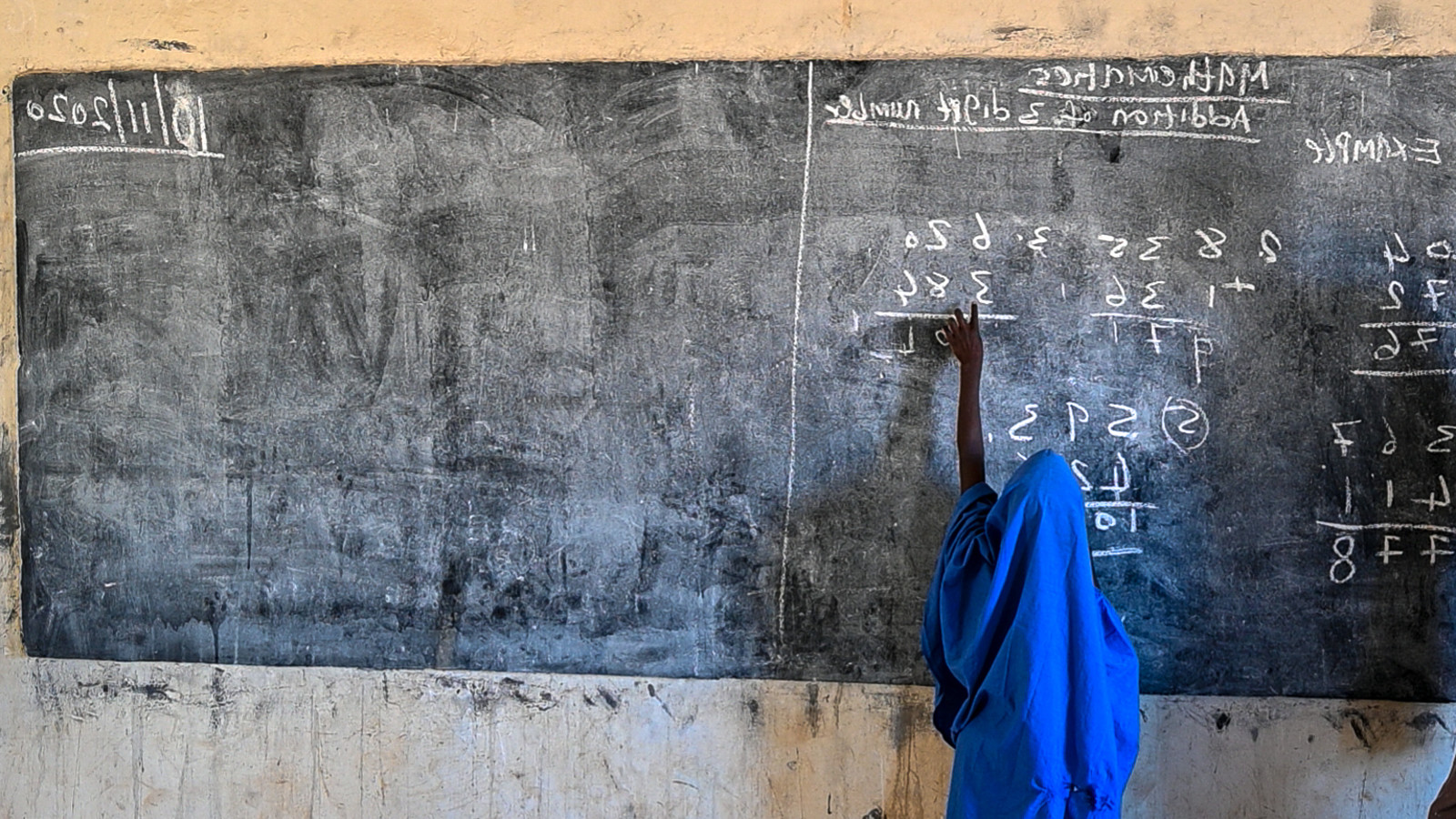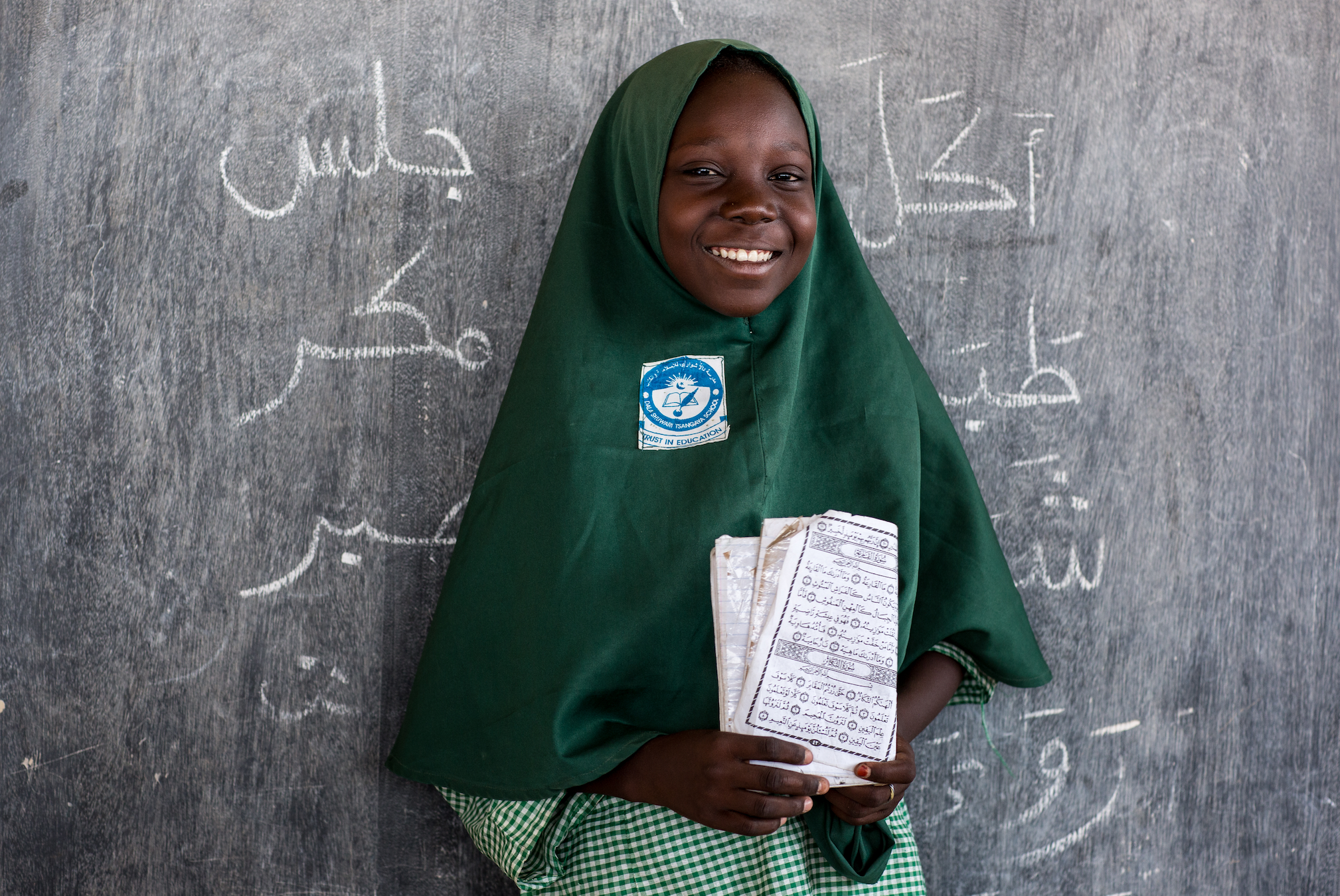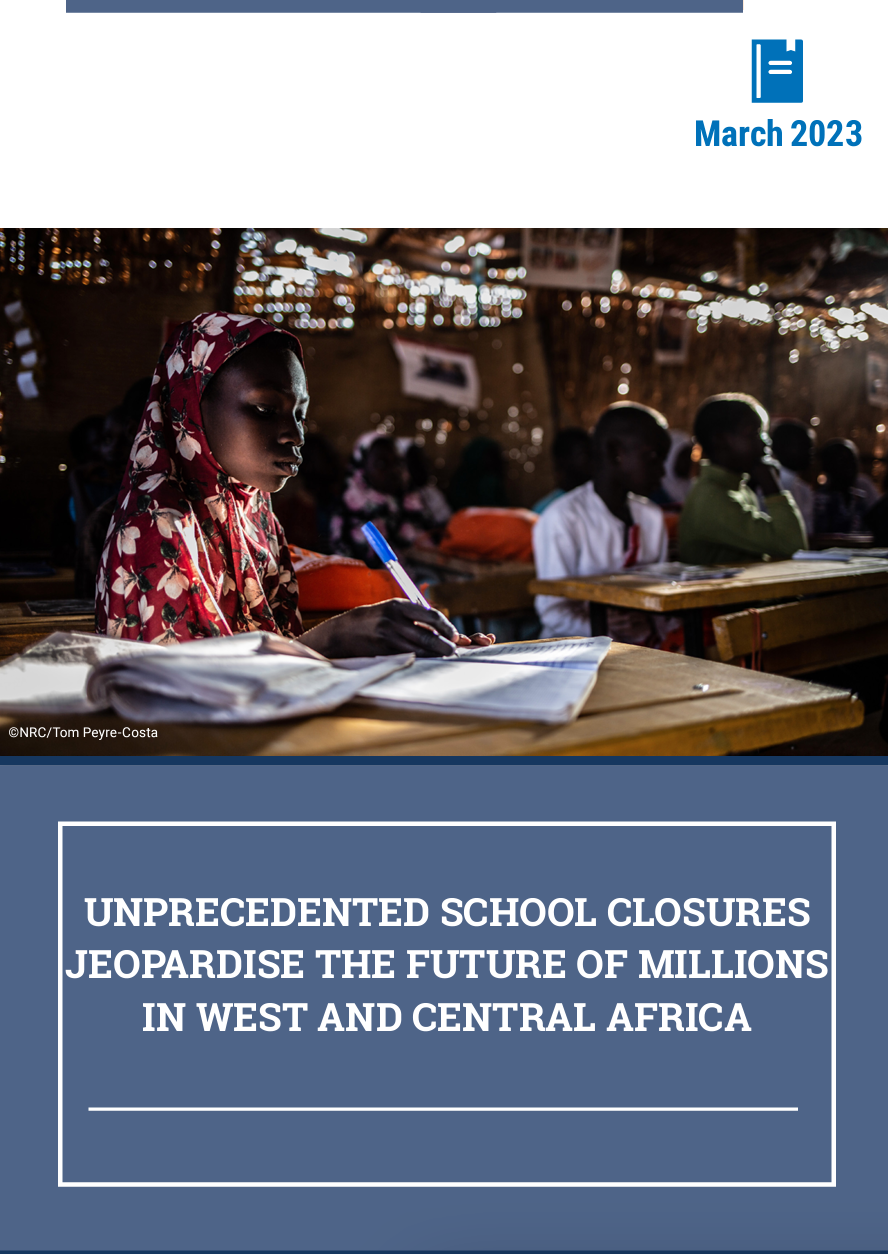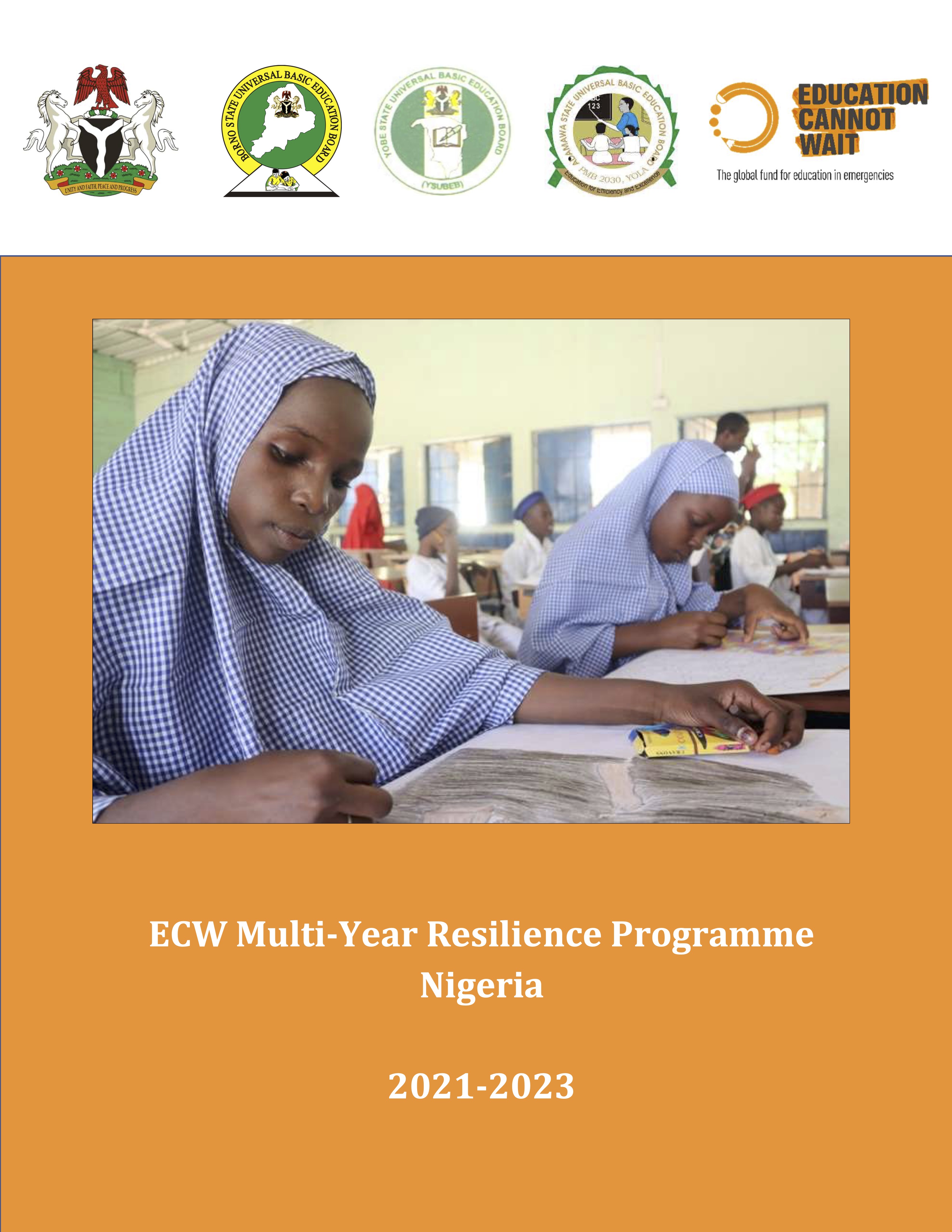ECW in Nigeria
A decade of armed conflict in north-eastern Nigeria due to the Boko Haram insurgency has displaced millions of people, disrupted livelihoods and left children and adolescents in harm's way. Educational institutions are regularly attacked, including the killing and abductions of learners and teachers, along with other factors such as widespread poverty, many students are out of school. Education Cannot Wait (ECW) partners ensure learning spaces are safe and protective; deliver professional development and well-being for teachers; offer vocational training; provide teaching and learning materials; construct gender- and disability-sensitive water, sanitation and hygiene facilities; and deliver child safeguarding programming. ECW also supports the reintegration of out-of-school children and girls back into formal learning environments.
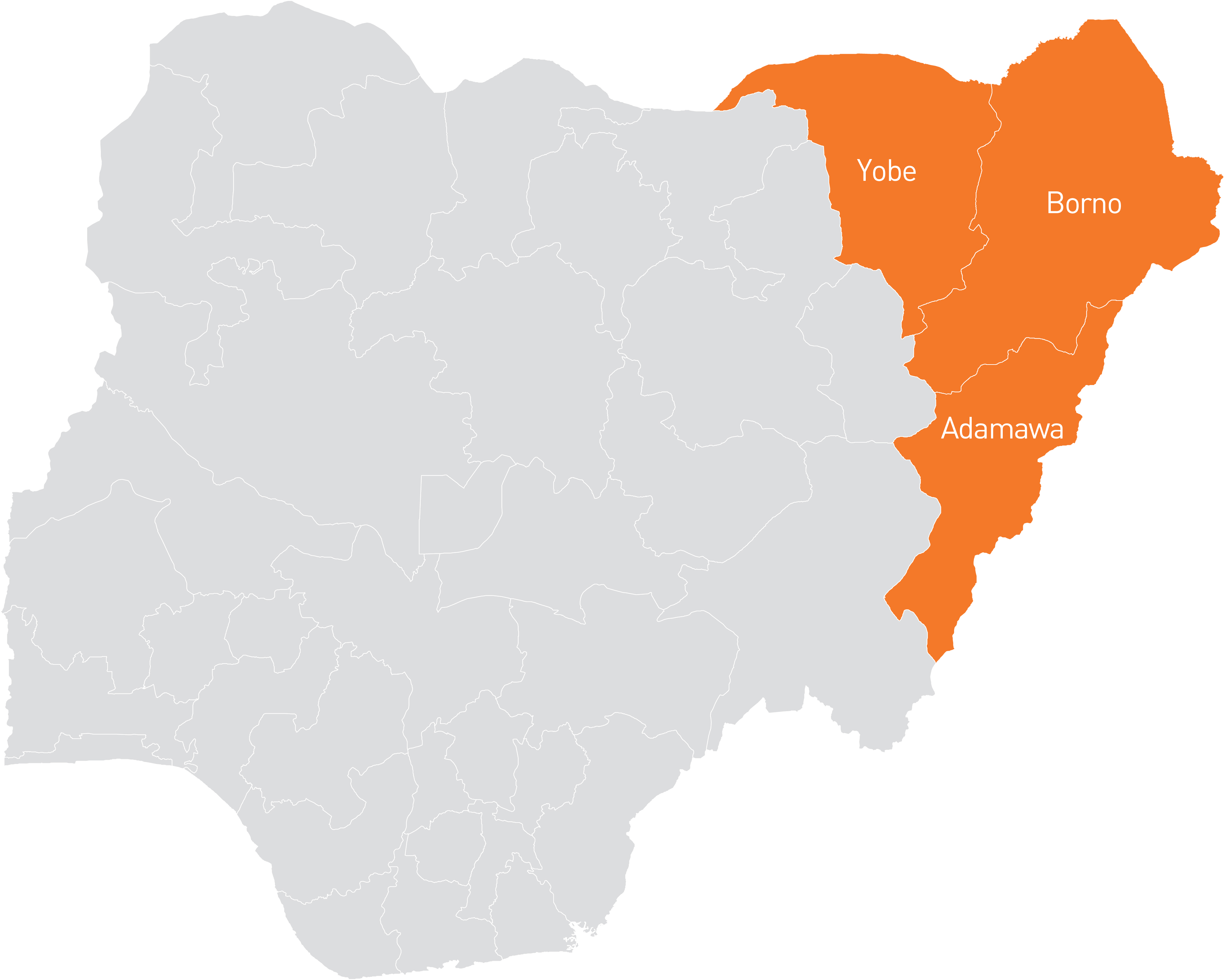
Investments
Financial Information
National Counterparts
Ministry of Education, National Education Group
Results
Additional Results
- Number of women and men reached by community mobilization campaigns to encourage re-enrolment of out-of-school children: 2,301
COVID-19 Results
Programme Info
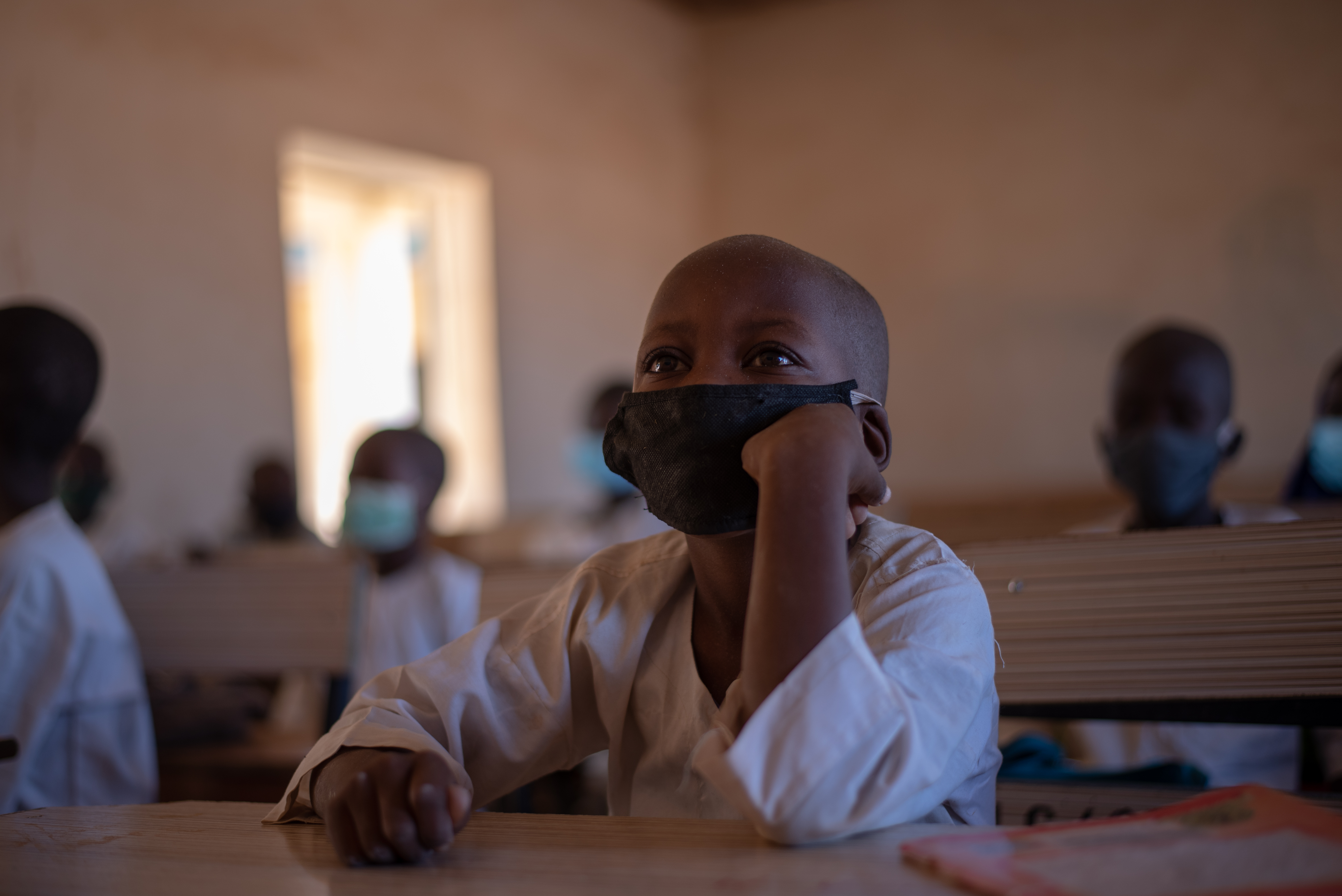
Educational institutions are regularly attacked by armed groups, including the killing and abduction of both students and teachers. Children and adolescents suffer from extreme protection and safety risks such as gender-based violence, abduction, arbitrary detainment and forced recruitment, all of which contribute to school drop-out. Girls in particular face risks en route to school – they often need to travel home to use sanitation facilities because many schools lack basic sanitation and hygiene infrastructure.
Widespread poverty is a compounding factor preventing students from accessing education as families cannot afford school fees. The lack of a quality education is a further deterrent. Schools lack the necessary classroom furniture and quality learning materials. Teachers are often absent and qualified teachers are in short supply. Girls and students with disabilities are disproportionately affected by these challenges.
ECW supported the girls and boys in north-eastern Nigeria with a First Emergency Response (FER), which was further expanded into a Multi-Year Resilience Programme (MYRP). The focus is on providing schools with the necessary materials; supporting vocational education for adolescents; improving safety around schools; and supporting educators with holistic training and financial support. ECW funding also facilitates the reintegration of out-of-school conflict-affected children.
Programme Components
- Increasing learning opportunities and life skills. Grantees provide teaching and learning materials, including school kits, teaching guides and textbooks, to students and schools to support vocational education and training for adolescents, including girls and children with disabilities. To monitor holistic learning outcomes, grantees work with the appropriate representatives to create a national-level monitoring and assessment toolkit on literacy, numeracy and mental health.
- Increasing protection and safety. New water, sanitation and hygiene (WASH) facilities and campaigns promote hygiene, child protection and child safeguarding at the community level. School leadership, personnel, teachers and school-based management committees receive training on inclusive education. Additionally, gender-informed codes of conduct are developed for school staff and volunteers.
- Reintegrating children who left school due to conflict. Classrooms are constructed and rehabilitated to accommodate greater numbers of children returning to school. Grantees engage with communities, education authorities, government officials and relevant NGOs to improve and sustain conflict-affected children’s enrolment in formal education. Funding supports children transitioning from alternative learning programmes to formal schooling. Community training interventions seek to change behaviours and attitudes that prevent girls from accessing education and that may result in recruitment by armed groups. Outreach to parents and guardians provides information on positive child discipline, the prevention of sexual violence, and mental health and psychosocial support (MHPSS) referral pathways.
- Supporting teachers. Teachers, especially women, are supported through educator stipends to reduce absenteeism and incentivize teaching in conflict-affected contexts. Teacher training covers inclusion and gender equality. A mentorship programme also supports MHPSS needs. Grantees work with authorities to develop a national teacher recruitment campaign and teacher retention strategy, focusing on increasing the recruitment of female teachers.
For more information on ECW's work in Nigeria, please contact Country Lead Dianah Nelsen (dnelson@unicef.org) and Programme Manager Fatou Niang (fniang@unicef.org).

